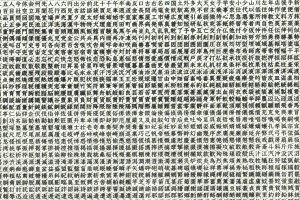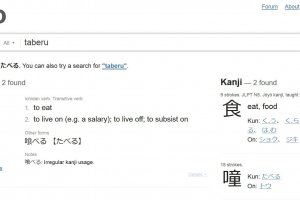At first, Japanese language is really confusing. A strange new alphabet (ah no sorry, 3 strange new alphabets!), unknown grammatical rules, a different syntax, exotic words and expressions. The list is long. Learning Japanese demands investment and the beginning is often frustrating. You don't know where to start. What to learn. And how to learn it.
Anybody would much rather watch the latest episode of Game of Thrones. It's so much easier. But you're not just anybody. You're reading this article because you have decided to improve your Japanese. You've decided to stop putting off your studies.
Though books can definitely give you a head start, you'll quickly find yourself looking for additional resources on the internet. There's a ton of tools out there, which can all help you go through this journey in a way or another. Actually there are so many that you could spend centuries to review them all. And because you don't want to spend your next centuries doing that, I'm going to share with you the free resources I find the most useful to learn Japanese. These are in my opinion the best in the solar system, and they will help you skyrocket your current level. Websites, dictionaries, add-ons – they're all free tools, so you've no excuse not to start right away (no, not even this latest episode of Game of Thrones). Here we go:
Dictionary: Jisho
First of all, every language learner needs a good, a great dictionary. For Japanese language, there's a bunch of them online, but Jisho stands out. It is the most well-known English-Japanese dictionary, simply because it is one of the best. Apart from the basic word translations, you can also look up kanji, sort out words by JLPT level, check verbs inflections, and a ton of other cool and useful features. Jisho is easy to use and has a user-friendly interface, very clear and concise. I find it very complete, and I bet you'll do too.
Grammar: Tae Kim's Guide to Japanese Grammar
It is quite hard to find complete and clear free tools about Japanese grammar. It must be a complex task to put grammar and expressions together in a readable guide, but Tae Kim did a pretty great job with this hard labor. There's a lot of information in his guides, and his explanations are logical and intuitive. Everything makes sense, and you always want to jump to the next lesson after finishing one, because you really feel like little by little you have a better understanding of Japanese grammar. Note that the best way to use this guide is still to use it in addition to a more traditional approach like in textbooks.
Kanji: Kanji Damage
Among all the tools I could find on the internet, Kanji Damage might be my favorite. Let me explain. I had always seen learning kanji as long, fastidious, boring, annoying, tiresome, stupid, tedious, monotonous. Uninteresting. And then I read about James Heisig's book "Remembering the Kanji" and its innovative method to learn them. Instead of studying kanji by order of frequency, Heisig tells us it is much more efficient to learn them by first breaking them down into radicals. From the simplest forms to the most complex, he introduces some radicals, and builds kanji out of them. When there is no more kanji made up of these radicals, he introduces a new one, combines it with the ones we have already learned and makes new kanji out of it. And this goes on until we have covered all the 2042 kanji of the jōyō kanji. He combines this method with mnemonics in order to help us remember the meanings of each kanji, and... magic happens. It works.
Kanji Damage uses the same kind of method, and although it doesn't arrange the kanji in the same order as Heisig (and doesn't list all the 2042 jōyō kanji), it is super efficient. Furthermore and unlike Heisig's book, Kanji Damage gives you the kanji's pronunciation and some common words it is used in. You can learn hundreds of kanji and perfectly remember them in a matter of a few months. The best part is, you'll come to actually like studying your kanji. It will become fun inventing new mnemonics for each kanji. True story.
Just note that if you're studying for a JLPT or another exam, you will find some of the most common kanji only very late (the JLPT5 kanji for "behind, later" which is written "後", is the 1235th kanji on Kanji Damage).
Software: Anki
Anki is an SRS (for Spaced Repetition System, yeah sounds awfully boring I know), and the most popular one. SRS use flashcards to help you memorize anything you want to remember on the long term. On one side of a card you have an information (for example a kanji), and you need to remember what is on the other side of the card (in case of a kanji, it could be its pronunciation and meaning). The less you remember a card, the more often you will see it.
Anki is a software, so you'll need to download it and install it on your computer. There are a lot of decks of flashcards already created by users and available to download (there is for example a Kanji Damage deck, with the flashcards having the same info as on the website), but you can also build your own customized deck if needed. It's probably worth watching some tutorials about how to use Anki, because it isn't really intuitive the first few times. On the internet you'll find a lot of self-learners recommending Anki, because flashcards are one of the best way to learn and memorize any stuff. You can of course use Anki for other areas if you wish to (yes you can use it to learn the name and the House of all the Game of Thrones characters. Though it might be even longer than learning kanji).
Extension: Rikaikun
Rikaikun (for Chrome) (also Rikaichan for Firefox) is an awesome plug-in that will quickly become indispensable during your web surfing time. It's a kind of very handy dictionary, a must-have for anyone using their browser to learn Japanese. And since you're reading this article, you probably do, so go download it now! When the extension is turned on, you simply need to hover your mouse over a Japanese word, and a little popup will instantly appear to give you information about this word. Try with this word: 漢字. How cool is that?
Bonus: Maggie Sensei
Maggie Sensei will teach you "real" Japanese. Over the years she wrote a ton of lessons containing a lot of information on Japanese colloquial expressions, grammar patterns, conversation tips. If you want to learn Japanese slang, then you've come to the right place. This website is a great addition to normal, more formal textbooks. Oh and did I forget to tell you that Maggie Sensei was a dog? A cute little French bulldog, so expect to see many, many pictures of her and her kawaii little dog and cat friends all over the website.
This is all for the best free resources to learn Japanese you can find on the internet. This list is of course not exhaustive, but with these few tools you can already make huge progress in no time! Let me know your thoughts in the comments, and if you have any other recommendation, please share it with everybody, we'll be happy to hear!


























